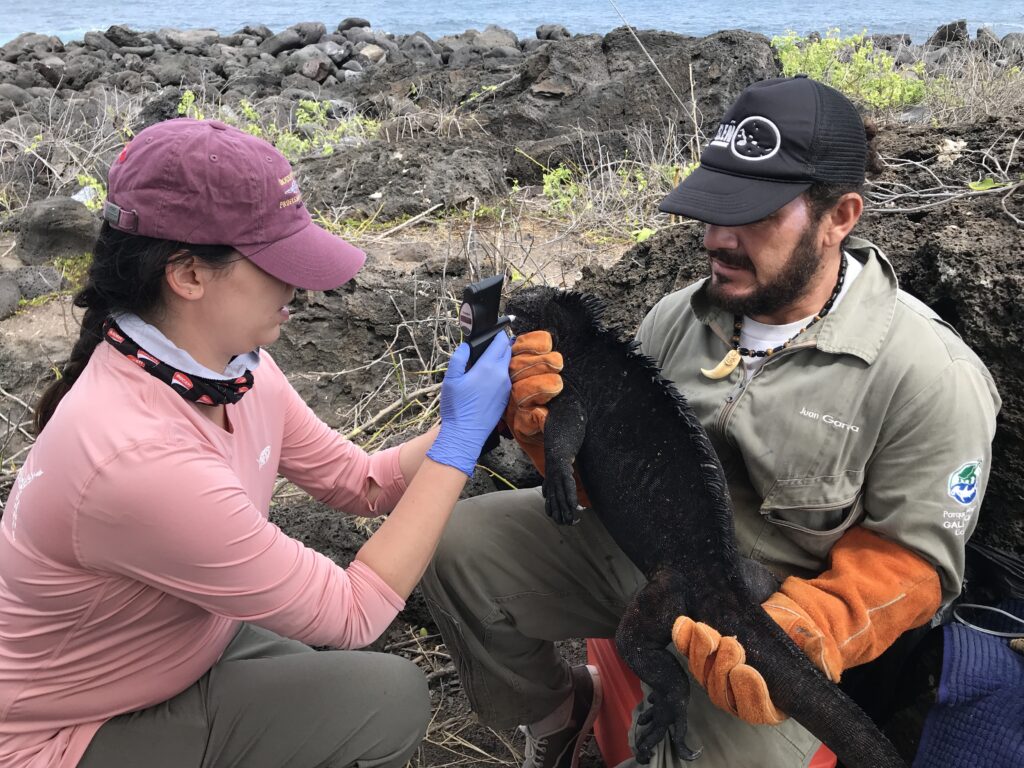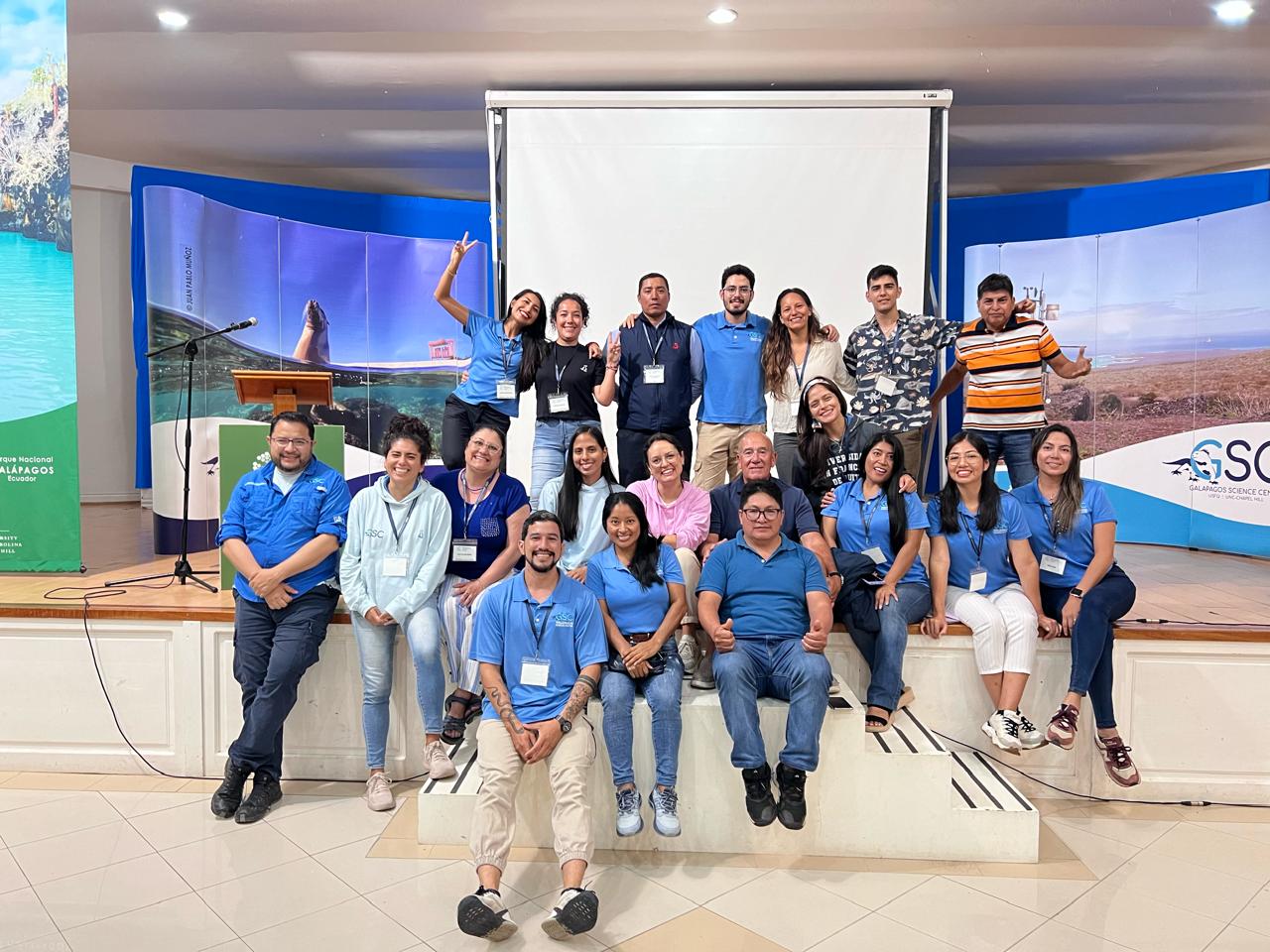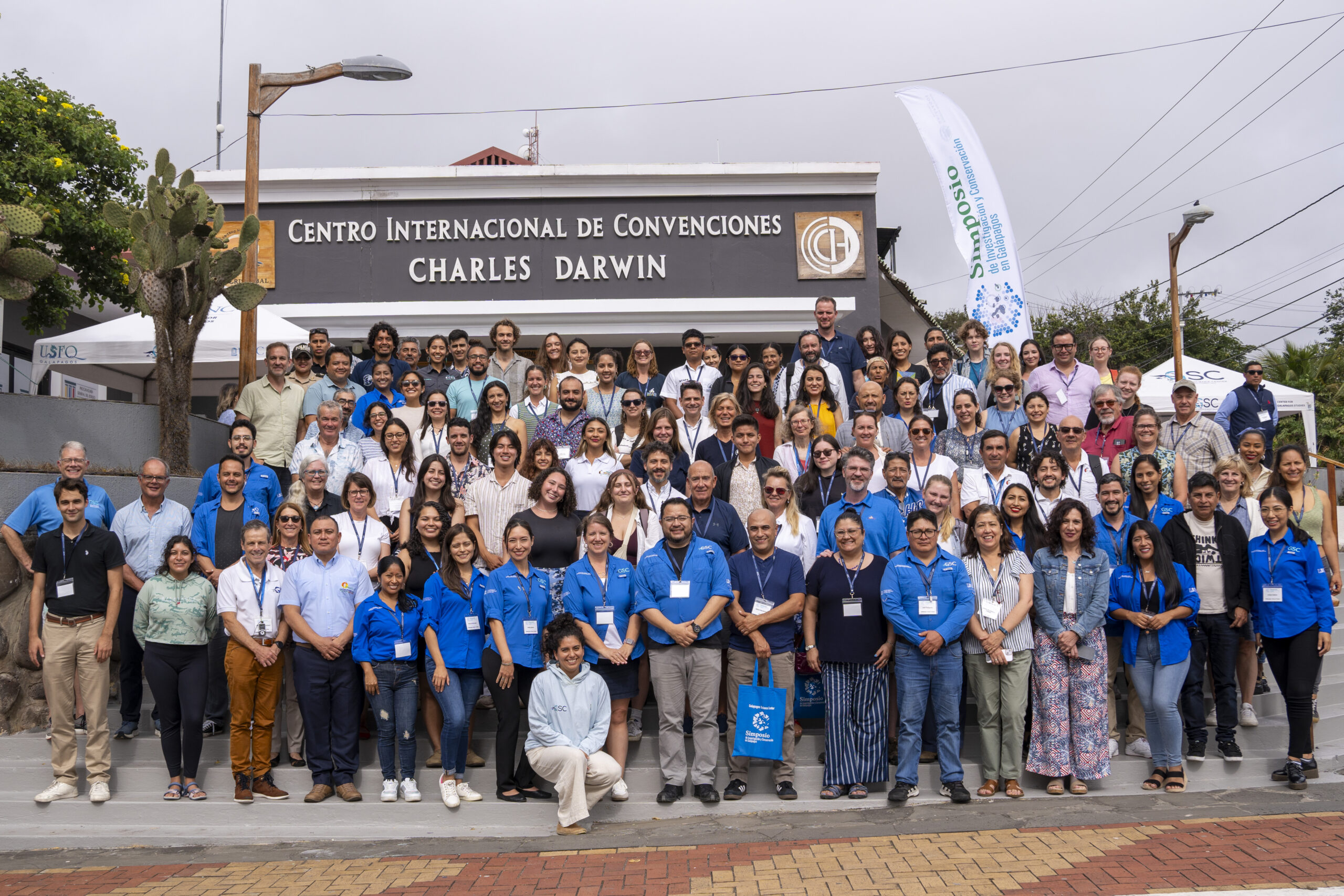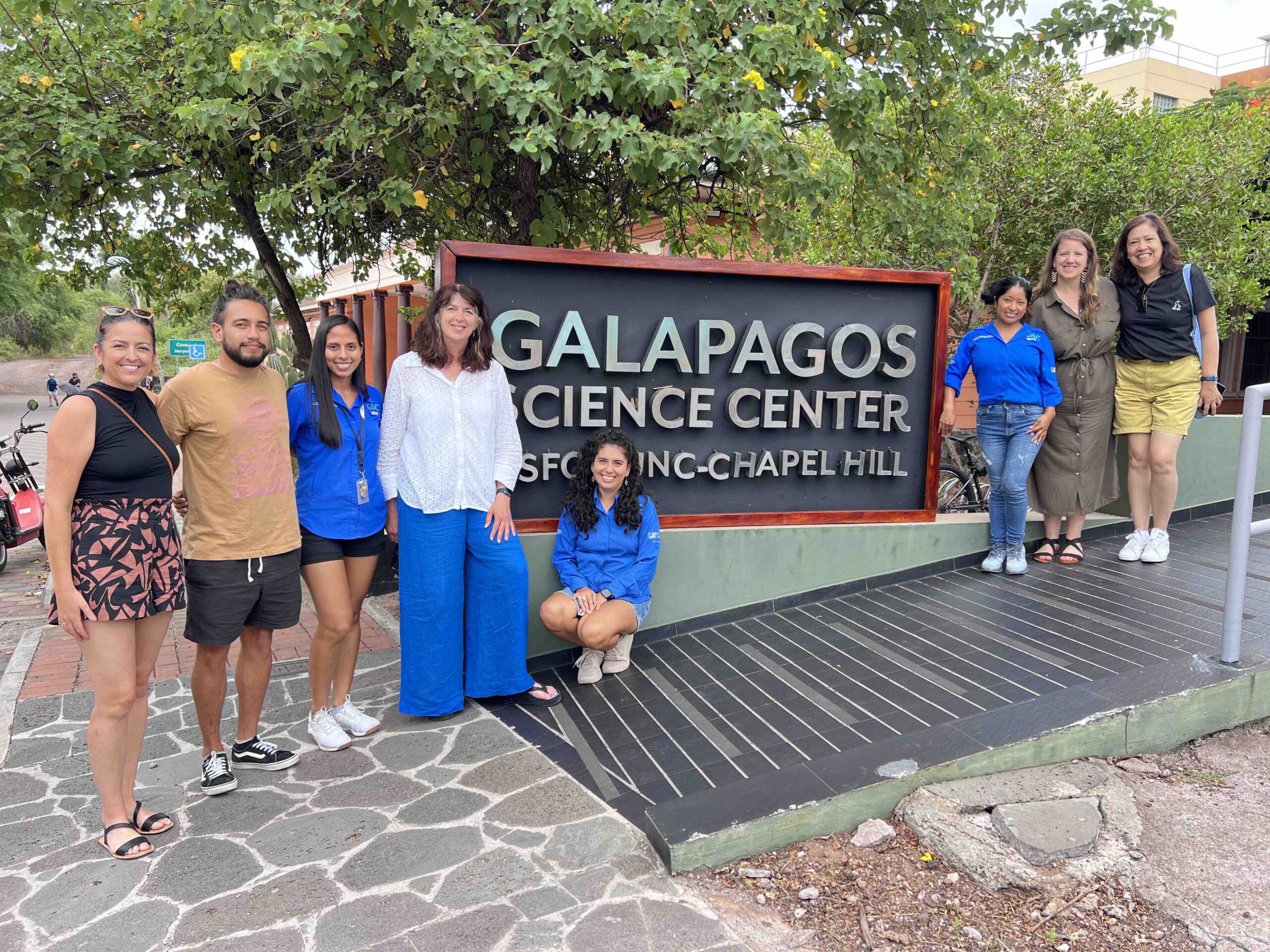Abstract:
The Galápagos marine iguana (Amblyrhynchus cristatus) is the world’s only marine lizard and is capable of swimming and diving to depths of several meters to forage for food. Thus, the physiology of this species must accommodate both terrestrial and underwater environments. Until now, no studies have evaluated ocular health parameters in this species. Free-ranging Galápagos marine iguanas (n=26) were captured in the field. Intraocular pressure (IOP) was measured using rebound tonometry at the beginning and end of the handling period. Tear production was measured using Schirmer tear test (STT) and endodontic absorbent paper point test (EPPT). Baseline physiologic parameters including heart rate and body temperature, as well as morphometric parameters (body weight, total length, snout vent length, hemipene sulcus length), and baseline blood parameters (packed cell volume, total protein, lactate) were evaluated. The mean IOP was 9.4 mm Hg (SD±1.4) and is comparable to other terrestrial iguanid species. Mean STT was 4.1 mm/minute and EPPT was 11.1 mm/minute. The IOP did not vary with snout vent length, total weight, hemipene sulcus length, or between the right and left eye. The IOP was higher at the beginning of handling compared to the end of handling, likely due to immediate stress associated with capture. The IOP did not vary with packed cell volume (PCV), total protein (TP), or lactate. These results represent a first step toward establishing a baseline for ocular health parameters in marine iguanas.
Read the article in the link: http://injvr.com/article-1-39-en.html






